Hotel Robot Market Witnesses Price Plunge: From 130,000 Yuan to a Mere 13,000 Yuan
![]() 11/19 2025
11/19 2025
![]() 442
442
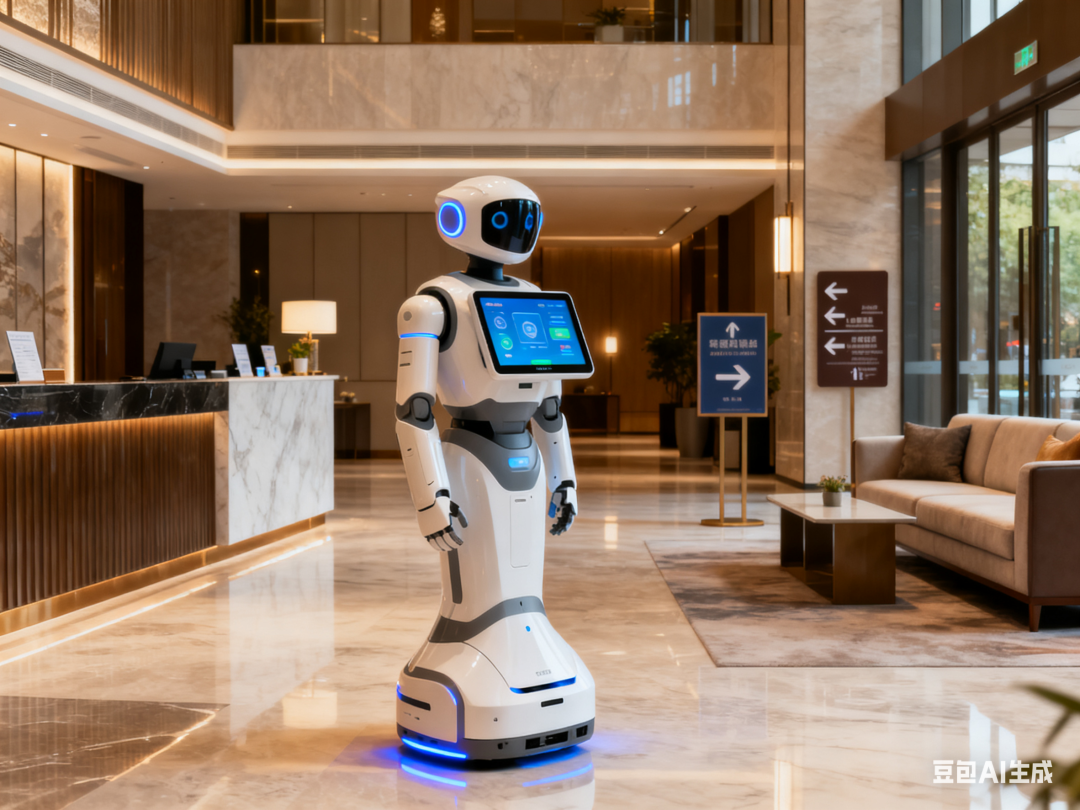
In recent years, hotel robots have become a common sight in major hotel chains. Yet, this seemingly high-tech emerging sector is far from being as glamorous as it appears on the surface.
Yunji Technology stands as the leader in the hotel robot industry. In 2024, it accomplished 500 million robot service tasks, with a peak of 36,000 robots operating simultaneously on a single day, covering 34,000 hotels across over 300 cities in China.
Surprisingly, these seemingly 'busy' robots in hotels are not generating profits. Despite being the industry leader, Yunji Technology has accumulated losses nearing 1 billion yuan over the past three-plus years.
These tech favorites among investors have indeed eased the workload of hotel staff but are still struggling to stay afloat amidst the industry's price wars.
Chaos Reigns in the Hotel Robot Market
Service robots moving back and forth in hotel corridors once left guests in awe at their first encounter, with Yunji Technology playing a pivotal role behind the scenes.
Established in early 2014, Yunji Technology specializes in the R&D of commercial service robots. Over the past decade, its robot products have been deployed in over 34,000 hotels, including clients like Ji Hotel and Hanting Hotel under Huazhu Group, as well as Atour Hotel and Home Inn under BTG Homeinns Hotels Group.
According to Frost & Sullivan data, in 2024, Yunji Technology led the domestic market with a 13.9% market share, surpassing the combined share of the second to fifth-ranked companies.
Pioneers like Yunji Technology have spurred significant capital interest in the entire hotel robot industry.
Since 2021, companies such as Yunji Technology and Keenon Robotics have frequently secured financing. Yunji Technology has raised 265 million yuan in Series C funding and 580 million yuan in Series D funding, backed by renowned institutions like Tencent and Alibaba, with a post-investment valuation exceeding 4 billion yuan.
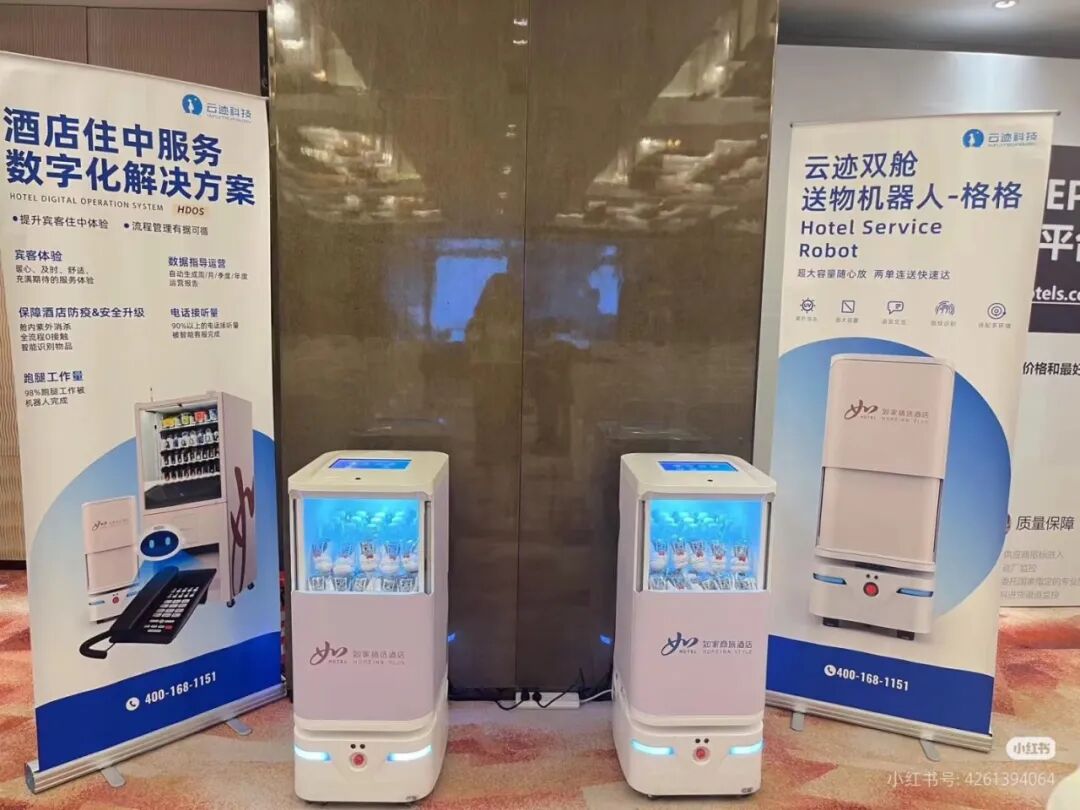
Bolstered by both policies and capital, the hotel robot sector has witnessed rapid growth.
According to the prospectus, Yunji Technology's total revenue surged from 161 million yuan in 2022 to 244 million yuan in 2024, marking a 68.6% growth rate in 2024. In the first five months of 2025, the company's revenue grew by another 18.9%. During this period, the gross profit margin also gradually increased from 24.3% to 39.5%.
Competitors have also been active. UDI Technology has completed multiple rounds of capital increases and shareholdings from hotel giants. According to its official website, its self-branded robots have been deployed in more than 600 cities nationwide, covering 10,000 commercial venues with a daily service volume exceeding 300,000 times. Not to mention other industry players like Keenon Robotics, Ninebot Robotics, and Pudu Technology, all vying for a piece of the pie in this field, with Keenon Robotics shipping over 30,000 units as early as 2023.
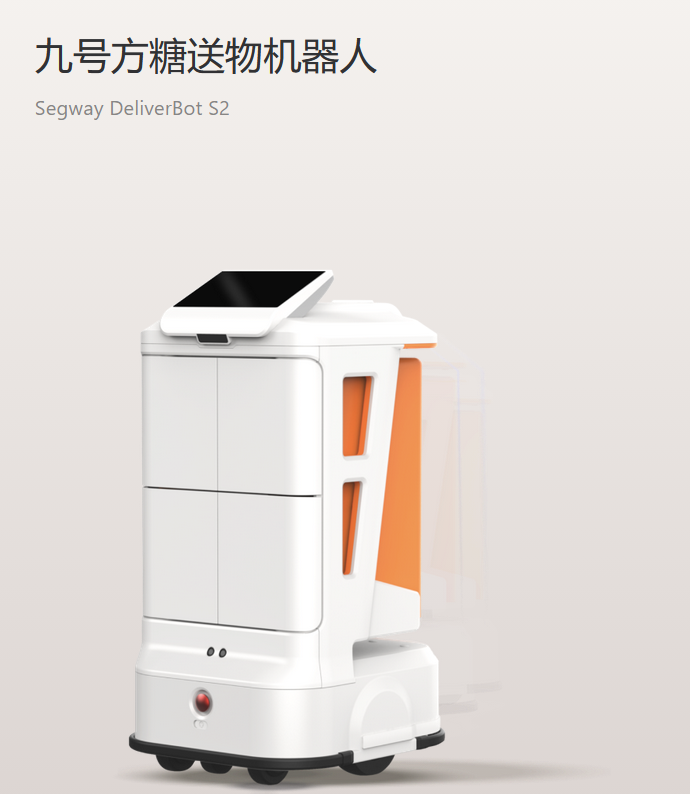
However, beneath the shiny exterior of hotel robots, the reality is far from perfect.
Taking Yunji Technology as an example, from 2022 to the first five months of 2025, the company incurred losses of 365 million yuan, 274 million yuan, 184 million yuan, and 118 million yuan, respectively, accumulating nearly 1 billion yuan in losses in less than three and a half years. The loss in the first five months of 2025 even expanded by 40.48% year-on-year.
The Hype Begins to Fade
The fading hype around hotel robots and the difficulty in achieving profitability are primarily influenced by two factors.
The fundamental reason lies in the heavy reliance on hotel scenarios, leading to a single revenue stream.
According to the prospectus, from 2022 to 2024, revenue from hotel scenarios accounted for 70.1%, 95.1%, and 83% of Yunji Technology's total revenue, respectively. By the first five months of this year, this figure had risen back to 93.2%.
This business model, heavily dependent on a single scenario, makes the company's performance more vulnerable to fluctuations in the entire hotel industry. During the challenging three-year period, the demand for contactless services surged, boosting the hotel industry's need for service robots. In 2023, as chain hotels gradually reduced their robot purchases, it directly led to a 10% year-on-year decline in Yunji Technology's full-year revenue.
Many may not be aware that the hotel robot sector is actually niche and crowded. According to data released by Orient Securities, in 2023, the market size of hotel service robots in China was only 1.1 billion yuan. Even maintaining a previous compound annual growth rate of 20.8%, it would only reach 3.6 billion yuan by 2028.
Numerous players are gathered in this narrow sector, making the competition fiercely intense. The combined market share of the top five players is less than 30%, indicating a relatively fragmented industry landscape.
Due to the gradual homogenization of products, hotel robot companies have reluctantly chosen to sacrifice price for volume to capture more market share.
According to the prospectus, the price of Yunji Technology's main product, the 'Run' series robots, dropped from 23,200 yuan per unit in 2022 to 13,100 yuan in 2024, a 43.8% decrease. The 'UP' series robots saw their price drop from 54,200 yuan per unit to 22,300 yuan, a decrease of over 60%.
Some distributors noted that as more players entered the market, price wars intensified. The average selling price of hotel robots plummeted from 136,000 yuan in 2016 to 13,100 yuan in 2024, a decrease of over 90%.
Under the impact of price wars, the profit margins of hotel robot companies have been severely compressed, leading to an embarrassing situation of 'losing money on every unit sold.'
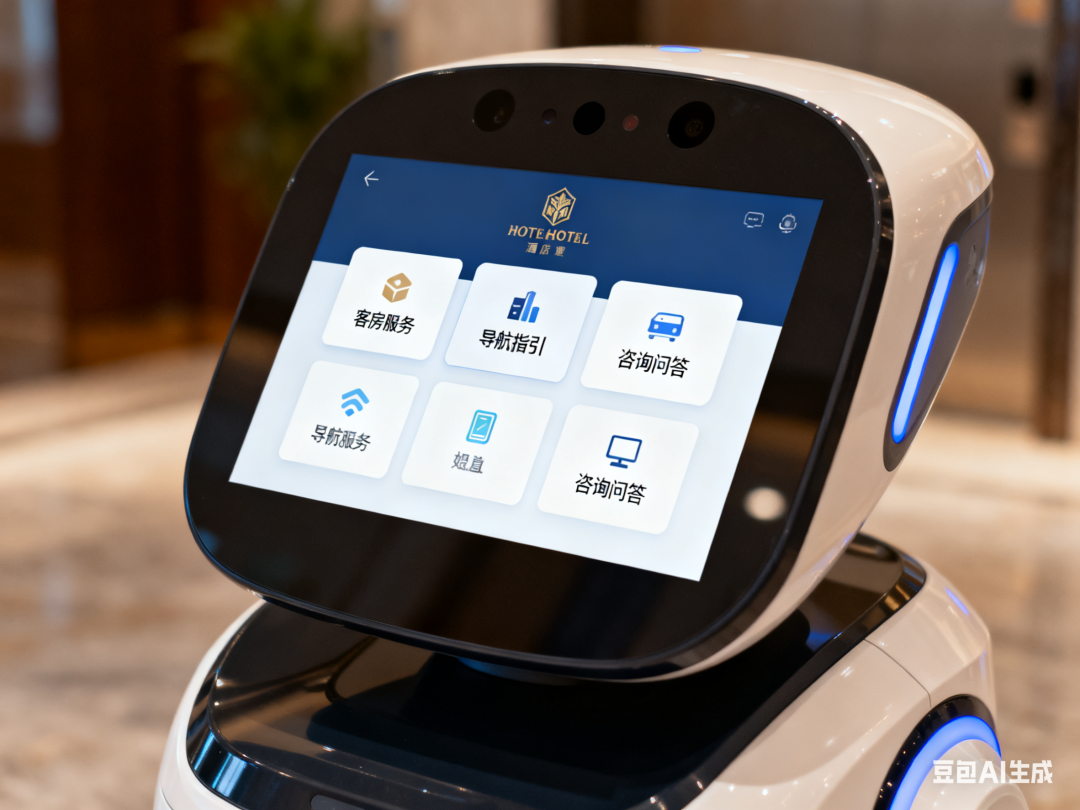
Where Does the Second Growth Curve Lie?
Undeniably, robots have played a significant role in reducing operational costs for chain hotels. According to an Orient Securities research report, taking hotel delivery robots with a unit price of around 20,000-30,000 yuan as an example, equipping two robots would involve a total investment of around 60,000 yuan over five years. In contrast, providing equivalent services manually would cost 750,000 yuan.
However, while hotel robot companies have eased the workload of hotel staff, they themselves are struggling. Thus, breaking free from the single hotel scenario has become the primary issue for Yunji Technology and its peers to address.
Currently, Yunji Technology has started to venture beyond hotels into office buildings, hospitals, and other scenarios. According to Frost & Sullivan projections, from 2024 to 2029, the service robot market in domestic medical institutions will rapidly expand at a compound annual growth rate of 46.6%. Additionally, scenarios like office buildings and factories also show significant growth potential.
However, in the short term, the new business still faces significant challenges.
On one hand, in 2024, revenue from areas including commercial buildings, medical institutions, and factories accounted for a relatively low proportion of Yunji Technology's total revenue, less than 3 million yuan. On the other hand, scenarios outside of hotels are also highly competitive. Moreover, environments like commercial buildings are more complex, requiring higher levels of robot intelligence.
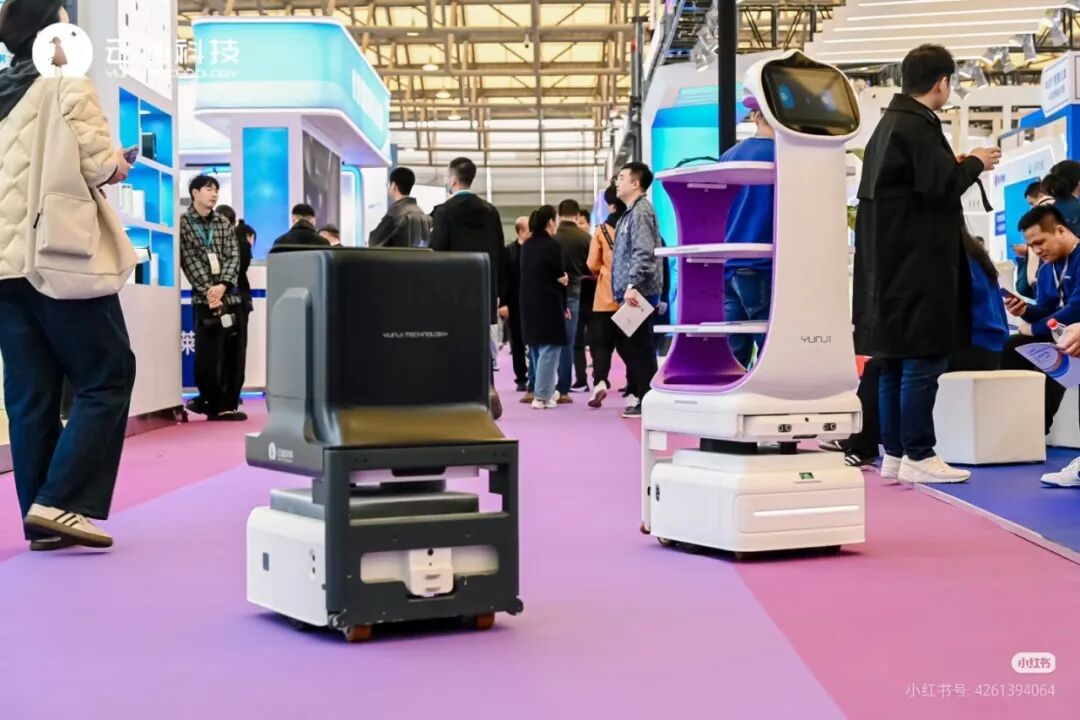
New scenarios require more time for in-depth cultivation, and Yunji Technology is also attempting to transition towards software.
Previously, the company successfully launched the HDOS, one of the industry's first service intelligent agent application systems, capable of providing multiple functions such as concierge services and order management. In 2024, its AI digital system accounted for 22.4% of total revenue, with a gross profit margin as high as 61.8%, significantly higher than that of hardware products. In the first five months of 2025, revenue from software products reached 9.188 million yuan, a year-on-year increase of over 10%, with the gross profit margin further rising to 67.2%.
As corresponding intelligent agent applications are integrated into more devices, it undoubtedly opens up imagination for Yunji Technology's second growth curve.
Overseas expansion has become another path for hotel robot companies seeking growth. On October 16, Yunji Technology officially listed on the Hong Kong Stock Exchange, becoming the 'first stock of hotel robots.' Less than half a month later, it took another step towards overseas expansion. At the end of that month, led by the Hong Kong Financial Secretary, it visited Saudi Arabia.
Saudi Arabia's booming tourism industry has driven rapid expansion in the hotel sector. Coupled with relatively high labor costs and an open attitude towards technology, it undoubtedly holds great appeal for Yunji Technology seeking overseas expansion.
However, in the fiercely competitive service robot sector, regardless of whether it's expanding scenarios, developing software, or going overseas, competitors have few secrets from each other. Ultimately, the focus must be on the R&D end, launching more differentiated products capable of addressing a wider range of complex scenarios.
Embarrassingly, by the end of 2024, Yunji Technology's R&D team had been reduced to 66 people, with the R&D expenditure ratio almost halving from 42% in 2022 to 23.4% in 2024.







